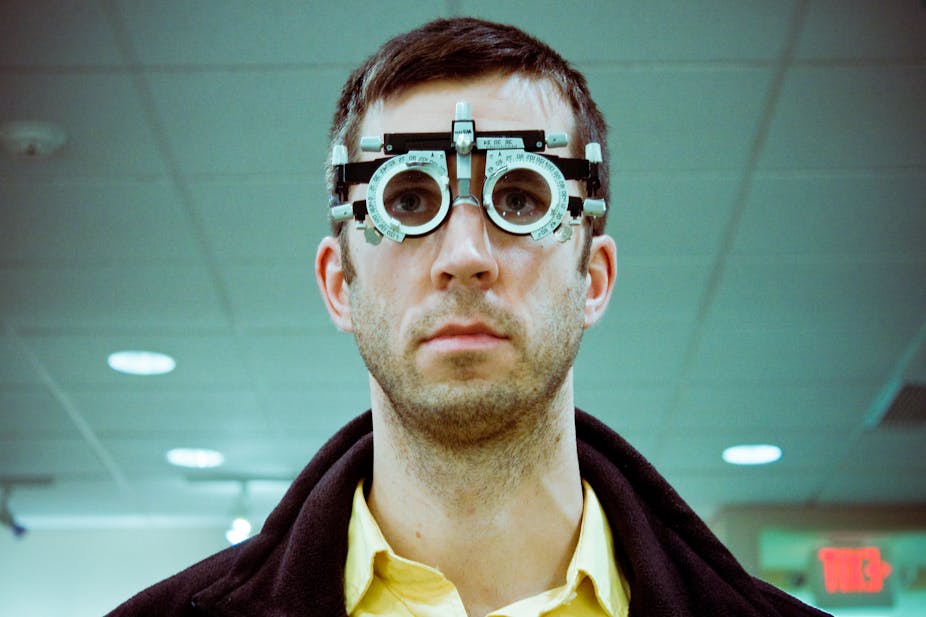Last week it was widely reported that several of the ABC’s best-known programs on television and radio may be axed. Among those under threat is the ABC’s only program solely devoted to history across all channels and stations, RN’s Hindsight. Rear Vision, which places contemporary events in their historical context, is also under threat. If those proposals are carried out, there will be no regular history programs on “our” ABC.
The ABC’s Charter states it must broadcast programs that “contribute to a sense of national identity and inform and entertain, and reflect the cultural diversity of, the Australian community”. Historical understanding underpins those aims, and I don’t think the ABC can fulfil them without Hindsight.
Since it began in 1997, Hindsight has consistently delivered a far broader array of historical stories on radio than television. While historical dramas and documentaries on television tend to garner more attention than those on radio, Australian history on the ABC in the last 20 years has been, at best, a sporadic affair.
Attempts to create regular history programs (Rewind) failed, in-house documentary production has disappeared, and both drama and documentary have proven highly vulnerable to the vicissitudes of government funding. While some excellent social history series and programs have been broadcast (The War That Changed Us – 2014; Utopia Girls – 2012; First Footprints – 2013; The Making of Modern Australia – 2010), they are still rare. Lightweight topics (such as ABBA and Skippy) and simplistic treatments of complex themes are still all too common in history documentaries.
That’s where Hindsight is vital: it offers hugely diverse histories, told in rigorous, imaginative ways. Radio National has history in its DNA. When it launched in 1985, it created its own Social History Unit, helmed by Tim Bowden. Under Bowden, the Social History Unit rode the wave of the social history and oral history booms of the 1970s and 1980s: not just telling histories of “ordinary” people, but allowing those people tell their stories in their own words.
Bowden’s collaboration with historian Hank Nelson – Prisoners of War: Australians Under Nippon – was the first time many POWs had ever spoken of their experiences as prisoners of the Japanese during the second world war. Their accounts – broken by sobs, told in halting whispers – have lost nothing of their power today.
It is hard to imagine that these men, silent for so long, would have been able to speak of their experiences on television: it was the intimacy of radio – its very lack of images – that made telling their tales possible.
Hindsight’s great strengths have always been the range and scope of the stories it covers, and the craft and imagination with which they are told. Hindsight features typically combine interviews with accounts by eyewitnesses or descendants (or readings from actors), music, archival audio and recorded sounds to produce complex, in-depth narratives of our past.
Unlike television, which is limited in subject matter by the need for archival images and film, Hindsight can tell stories from any historical time-frame. Hindsight has been especially good at foregrounding the kinds of histories we only rarely (if ever) see on ABC television, such as Indigenous, women’s, migrant, and family histories. Where will those voices be heard if Hindsight is lost?
The surprise success of This American Life (and of narrative podcasting more broadly) reminds us radio can still captivate audiences with compelling stories. Its power is extremely well-suited to historical narratives.
Radio features (such as those produced at Hindsight) evoke time and place with sound, accent and music, allowing the listener to imagine the personalities behind the voices. Our television history documentaries, in contrast, increasingly favour leaden and literal dramatic reconstruction.
Hindsight makes history accessible to a far larger audience than history books can. Academic history books typically sell (far) fewer than 1,000 copies, while almost 90,000 people listen to the two Hindsight broadcasts every week. And consider this: the final episode of the beautiful ABC TV series The War That Changed Us, produced for a vastly larger budget and with considerably more publicity than a typical Hindsight feature, attracted just 472,000 viewers.
Hindsight has provided a crucial avenue for historians to explain their research to a large audience.
As we head into the centenary of WWI commemorations, it is more vital than ever that we remember our history is more than stories of Anzacs: Hindsight offers the ABC the best chance to meet its charter obligations while showing us our history in all its diversity.
As historian Frank Bongiorno noted in an email to me this week, “if the ABC axes Hindsight, it would not merely be killing a program but, at least so far as Australia is concerned, a genre: history on radio”.

